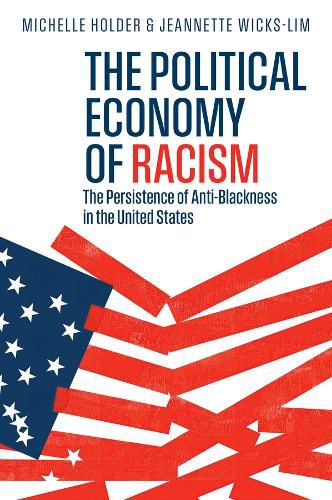Readings Newsletter
Become a Readings Member to make your shopping experience even easier.
Sign in or sign up for free!
You’re not far away from qualifying for FREE standard shipping within Australia
You’ve qualified for FREE standard shipping within Australia
The cart is loading…






Why does racial inequality in America persist? In this important textbook, Michelle Holder and Jeannette Wicks-Lim answer this question by introducing readers to the innovative field of stratification economics.
Stratification economics offers an antidote to conventional economics' hyper-focus on individuals and disregard for how politics shapes the economy. It spotlights how groups - such as racial groups - compete to gain favorable positions in society, including through political and economic domination. The book fuses stratification economics with intersectional theory to illuminate the influence of gender and ethnicity on how racial oppression operates. Drawing on history and empirical data, Holder and Wicks-Lim argue that anti-Black racism developed and persists because it protects the interests of a politically dominant social group: White Americans. This argument is demonstrated across the arenas of education, employment, wealth, and the criminal legal system. Policy intervention - through government action spurred by social movements - is necessary for achieving racial equity within the economy and beyond.
The first introductory textbook of its kind, The Political Economy of Racism is an essential resource for students and scholars.
$9.00 standard shipping within Australia
FREE standard shipping within Australia for orders over $100.00
Express & International shipping calculated at checkout
Why does racial inequality in America persist? In this important textbook, Michelle Holder and Jeannette Wicks-Lim answer this question by introducing readers to the innovative field of stratification economics.
Stratification economics offers an antidote to conventional economics' hyper-focus on individuals and disregard for how politics shapes the economy. It spotlights how groups - such as racial groups - compete to gain favorable positions in society, including through political and economic domination. The book fuses stratification economics with intersectional theory to illuminate the influence of gender and ethnicity on how racial oppression operates. Drawing on history and empirical data, Holder and Wicks-Lim argue that anti-Black racism developed and persists because it protects the interests of a politically dominant social group: White Americans. This argument is demonstrated across the arenas of education, employment, wealth, and the criminal legal system. Policy intervention - through government action spurred by social movements - is necessary for achieving racial equity within the economy and beyond.
The first introductory textbook of its kind, The Political Economy of Racism is an essential resource for students and scholars.